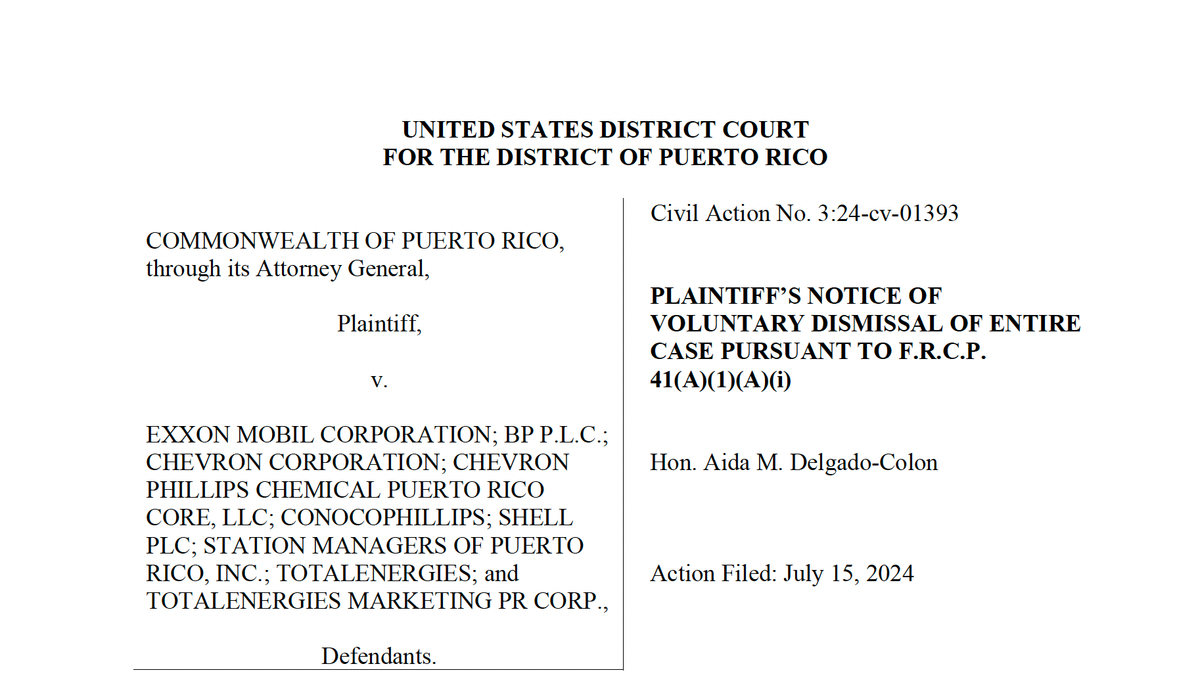Puerto Rico Dismisses $1 Billion Climate Lawsuit Amid Fossil Fuel Group, Trump DOJ Attacks on Threats to Big Oil
The Commonwealth of Puerto Rico voluntarily dismissed its $1 billion climate lawsuit against the fossil fuel industry amid attacks from President Trump's Department of Justice and right-wing, pro-fossil fuel advocacy groups.

Hey, dear reader. While I first broke this story yesterday on Twitter, The Guardian's excellent Dharna Noor beat me to the writeup because I was busy doing work for my other jobs. (If you're my editor reading this, I'm sorry!). If you like what I do, how I do it, and want me to help me break news on this newsletter, become a subscriber and share my articles as broadly as you can/want. Thanks!
Puerto Rico voluntarily dismissed its $1 billion 2024 climate lawsuit against the fossil fuel industry, according to a legal filing submitted Friday. The dismissal comes at the same time as pro-fossil fuel organizations and the Trump administration are attacking climate litigation around the United States.
The archipelago’s lawsuit, filed in July 2024, alleged oil and gas companies misled the public about the dangers their products posed to the climate. It was one of three climate lawsuits filed in Puerto Rico that came as part of a wave of climate litigation against Big Oil and Gas.
While the Friday filing does not list a reason for the dismissal, it came just days after the right-wing pro-fossil fuel advocacy group American Energy Institute (AEI) sent a letter to Governor Jenniffer González Colón asking she direct the archipelago’s nominated-but-not-yet-confirmed Secretary of Justice Janet Parra Mercado to withdraw the complaint. AEI called the lawsuits “coordinated lawfare” in the letter and said they were part of a “racial ‘green’ agenda” in a tweet.





